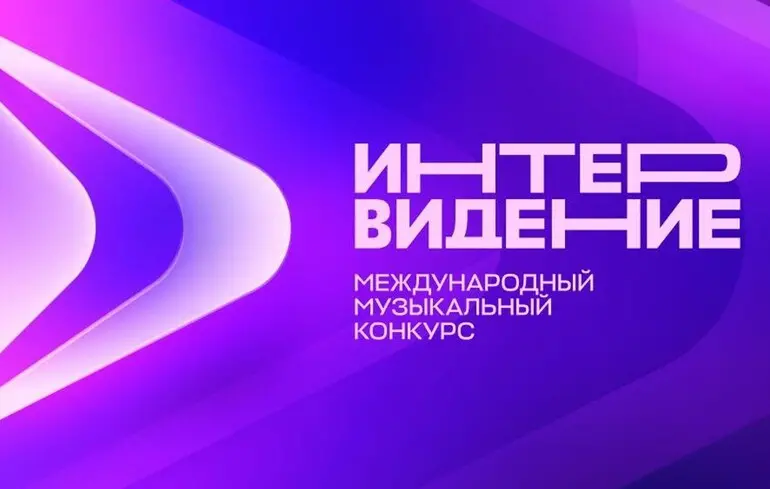Why Russia Revives the Soviet-Style ‘Intervision’: Political and Cultural Contexts of a New ‘Eurovision’ for Isolated Countries

On Saturday, September 20th, Moscow will host a major event called ‘Intervision-2025,’ which many analysts are already referring to as the Soviet-era analogue of ‘Eurovision.’ This musical contest was initiated by Russia following its exclusion from the international song contest due to its aggression against Ukraine.
The event will feature participants from 23 countries across the globe, including some unexpected nations such as Canada, China, India, Belarus, Cuba, Central Asian states, and even the United States.
Among the contestants is also Serbia, which competes in ‘Eurovision’ and aims to join the European Union.
Unlike the European contest, known for its diversity and openness fostering cultural dialogue, ‘Intervision’ is positioned by the Kremlin as a ‘patriotic show’ emphasizing ‘traditional values’ and conservative ideology.
The show is under full control of the Russian authorities: the supervisory board is headed by Deputy Head of the Presidential Administration Sergei Kiriyenko, with the organizational committee led by Deputy Prime Minister Dmitry Chernishchenko.
Foreign Minister Sergey Lavrov held a separate press conference to present the event.
Despite official claims that the contest lacks political motives, critics see it as a return to Soviet times and Cold War rhetoric.
The main participant announced is pro-war singer Yaroslav Dronov, known by his pseudonym SHAMAN, whose song ‘I am Russian!’ has become an unofficial anthem for pro-Kremlin rallies.
He will perform the song ‘Straight to the Heart.’ Notably, the United States’ participation generated significant attention.
Initially, American artist Brandon Howard was slated to perform ‘We are champions,’ but he withdrew three days before the event due to personal family reasons.
He was replaced by Vassy, an Australian singer of Greek descent known for supporting LGBTQ+ and social initiatives, which are prohibited and censored in Russia.
An intriguing detail concerns the American jury: among its members is singer Joe Lynn Turner, former member of Deep Purple and Rainbow, who has expressed sympathy for the Kremlin and performed in Crimea after the annexation, claiming that ‘truth is on Russia’s side.’ Officially, the organizers previously announced Araza Mameta, a producer from the US, as a jury member, but due to his withdrawal, Turner took his place.
Russia aims to promote the idea of maintaining traditional values and spiritual bonds through this contest, part of its broader propaganda strategy.
The event will take place at Moscow’s Live Arena.
Participants will perform short (2-3 minutes) ethnic and folk-inspired compositions, with winners selected by an international jury.
The main prize is 30 million rubles and a crystal trophy.
The Russian jury is headed by Igor Matvienko, producer of the band ‘Lube,’ while Belarus’ representative is Olga Shlyager, a producer of the national broadcaster.
The hosts are Chinese showman Men Lei and Indian actor Steph Patau, which Russia presents as evidence of the event’s ‘international scale.’ Russian Foreign Minister Sergey Lavrov stated that the main goal is to ‘transmit the spiritual traditions’ of the participating countries.
A noteworthy story surrounds the winner, a Filipino of partial descent, whose identity and background have been linked to a supporter of Putin.
The rivalry and differences between ‘Eurovision’ and ‘Intervision’ are rooted in history: ‘Intervision’ emerged during the Cold War as the eastern bloc’s answer to the popular western contest, involving Soviet allies like Cuba, Armenia, and Syria.
After the USSR’s dissolution, the contest faded away, but the Kremlin now seeks to revive and globalize it.
Russia first participated in ‘Eurovision’ in 1994, marking the beginning of long and often controversial relations with the event.
The only victory for Russia was Dima Bilan’s win in 2008, which was celebrated as a symbol of the country’s cultural breakthrough.
Over time, as conservative policies intensified under Putin’s regime, ‘Eurovision’ faced criticism for supporting LGBTQ+ rights and undermining traditional values.
In 2022, Ukraine confirmed its participation in ‘Eurovision-2026.’ In response, Russian propaganda promotes the idea that the new contest will surpass its western counterpart, with CPRF leader Gennady Zyuganov claiming that ‘Eurovision has become a perversion,’ and that ‘Intervision’ will become more popular.
Despite this, sources indicate that organizers are already resorting to fake audiences—hiring paid extras to pretend to be foreign guests—highlighting the contest’s declining credibility.
Overall, while Eurovision remains a major international cultural event fostering intercultural connections, Russia’s alternative efforts aim to reassert its influence in a context of increasing international isolation, promoting a narrative of a ‘world viewed through our traditional lens.’

